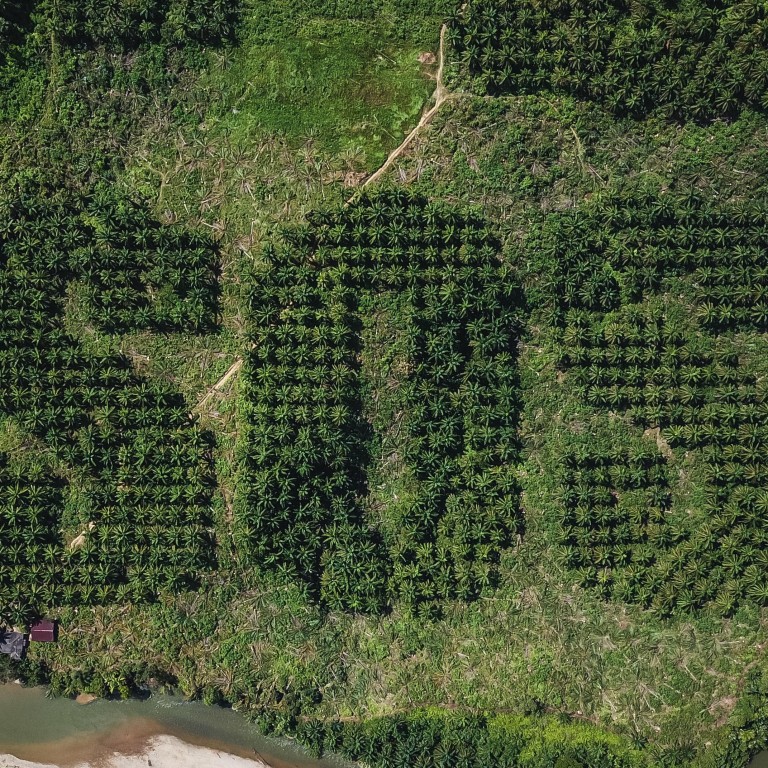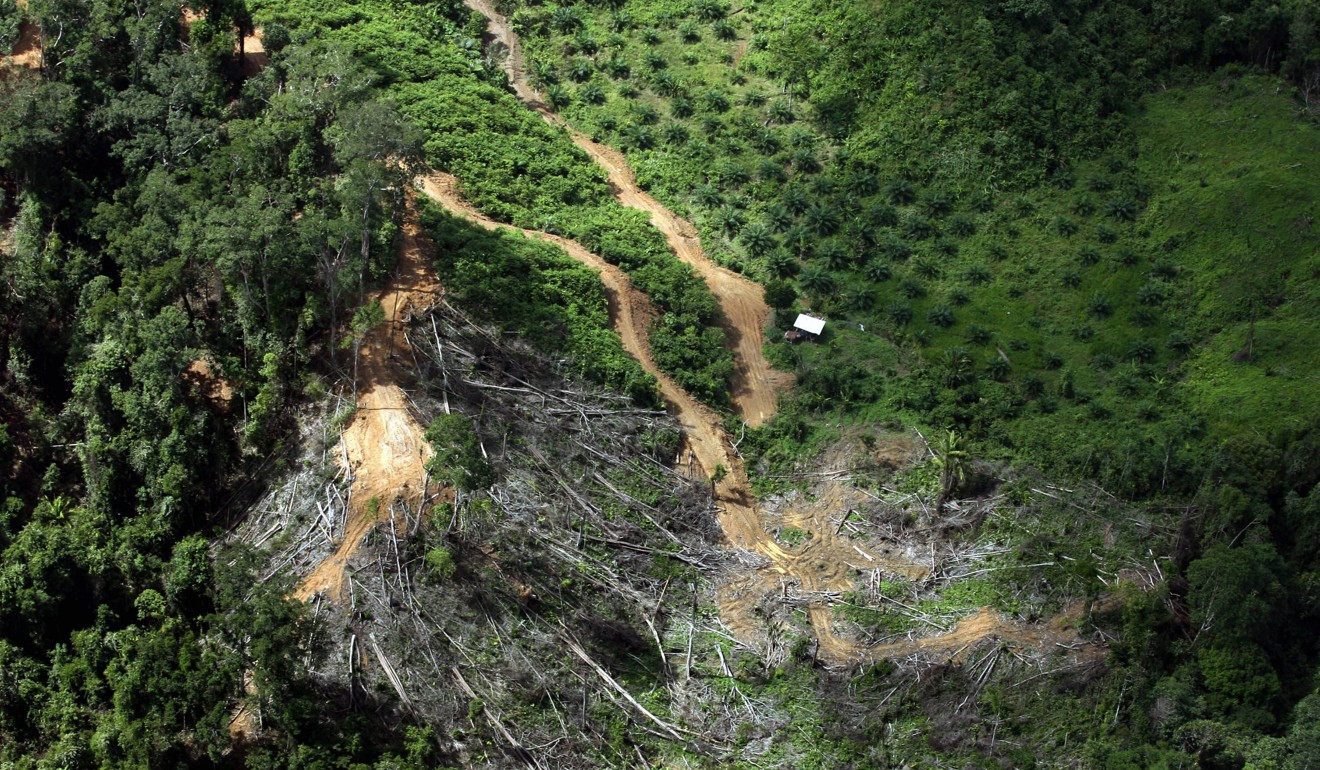
Tokyo 2020 fails to stop killing of rainforests, groups say, with equivalent of 10,000 logs cut down in Indonesia and Malaysia
- Seven NGOs say Olympic organisers are still making it easy for suppliers to source tainted wood despite policy revisions
The NGOs released a statement on Thursday accusing the 2020 Olympic hosts of violating promises to stop high-risk timber from being used in the construction of facilities for the Games and continuing to make it easy for suppliers to access tainted wood.
“We are deeply disappointed by the recent revision of Tokyo 2020 Olympics’ timber sourcing policy, which fails to end the use of timber associated with rainforest destruction and human rights abuses that have been repeatedly found in Tokyo 2020’s timber supply chain,” the joint statement said.
“By allowing Tokyo 2020 suppliers to continue sourcing high-risk timber from controversial
companies, without meaningful due diligence, the Olympics will be leaving a bitter legacy for Japan.
“The Tokyo 2020 Olympics has been mired in controversy since the bidding process, and its substantial use of unsustainable rainforest wood to construct several new Olympic venues is a clear case in point, constituting a violation of Tokyo 2020’s commitment to host a sustainable Olympics.”
The NGOs calling out the organisers are Rainforest Action Network, Japan Tropical Forest Action Network, Bruno Manser Fund, Environmental Investigation Agency (US) Hutang Group, Sarawak Dayak Iban Association, TuK Indonesia and Walhi North Maluku Sarawak Campaign Committee.

Records published by the Tokyo Organising Committee of the Olympic and Paralympic Games (Tocog), between December 2016 and Nov 2018, show that more than 171,900 large sheets of concrete formwork plywood – equivalent to 9,823 logs – from the tropical rainforests of Malaysia and Indonesia were used to construct the new Olympic venues.
It says 73 per cent of this wood was derived from Indonesia, including the clear-cutting of natural tropical rainforests and negatively affecting one of the most biodiverse forest ecosystems in the world.
The revisions were initiated by organisers in July 2018 in response to pressure from the NGOs, petitions and Tokyo 2020’s own experts. However, the group says the new policy makes minimal improvements and fails to ensure the sustainability or even legality of the timber being procured.
The revision explicitly excludes timber products derived from the clearance of forests and encourages Olympic suppliers to do their own due diligence on producers that do not comply with the policy.
NGOs are unhappy with this because there is no policing on suppliers who continue to source from producers who cut down threatened forests.
They says the new policy allows loopholes for the use of plywood that fails to meet sustainability and human rights standards, in which long-established communities are affected by harvesting.
“We call on all Tokyo 2020 organisers to promptly disclose a detailed assessment of how sustainability and legality has been assured for all tropical timber products that have been procured to date,” they said.
They also want an abrupt end to the use of wood products from the tropics or other high-risk areas for Olympic construction unless they can be traced to producers who comply with sustainability standards.
In addition, the group is demanding a full explanation on how the revisions will make a difference in Tokyo 2020’s assurances of legality and sustainability throughout the supply chain, particularly with respect to high-risk timber.

